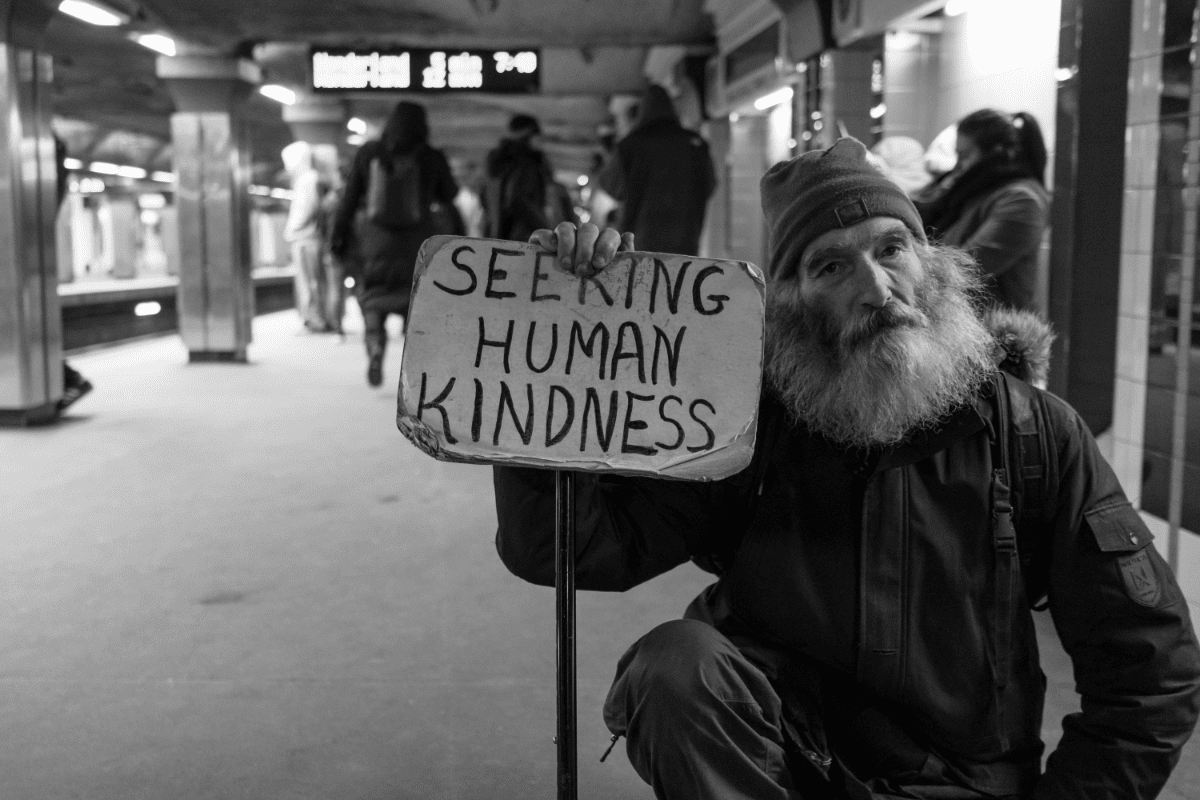Right from toddlerhood we’re taught the importance of kindness, sharing and being kind to others. Being kind is a trait held in high esteem and, although it may seem so simple even to the point of insignificance, many cultures throughout the world and history have recognised kindness as a powerful virtue. Little things can make a big difference, but why is kindness so powerful, and how can it help us?
An instance of kindness can bring a smile to your lips even weeks or months later, and it really resonates deeply with us as empathetic humans. Kindness acts as the oil which smooths the engine of our day-to-day lives, allowing it to operate without friction and for everything to work in blissful harmony. Whether letting someone stand in front of us in a queue, giving up our seat on the bus to someone more needy, or giving money to charity- every single choice we make encourages a culture of kindness. The smallest gesture can shine a sun beam of light through the darkness and give those less fortunate than ourselves a glimmer of hope. Kindness is available to all and in limitless supply; we just have to choose whether to make the kind choice. Even the smallest kind act can nourish the soul and bring about joy, hope and happiness.
Kindness Starts at Home
“To love oneself,” wrote Oscar Wilde, “is the beginning of a life-long romance.” All too often in the busy whir we call modern life, we forget to be kind to ourselves. We work all the hours, we give ourselves impossible deadlines, we spread ourselves too thinly and we forget to make time for our own happiness. There is endless research that shows how being kind to yourself can create deeper life satisfaction, happiness and optimism. Being kind to yourself by making time to do things you enjoy, ensuring that you nourish both your body and your soul, and treating oneself with kindness and care (as you would a dear friend) is crucial to overall health and happiness. If you’re not happy and well, you can’t very well share that glow with others.
Being kind to ourselves also involves giving yourself a break mentally. When you feel like beating yourself up over something you have/haven’t done, when your inner voice is critical instead of warm and gentle, you’re not being kind to yourself. Exercise self-compassion and remind yourself that you are doing your best and you ARE WORTH IT. Everyone makes mistakes and these are pivotal to our learning and self-development, beating oneself up over something you can’t have helped is damaging and not being kind to yourself. Other ways of self-compassion involve saying ‘no’ if it means protecting yourself, or motivating yourself with a positive inner voice (“you can do this, i believe in you!”).
The Yin and Yang of Buddhist teachings about self-care have two strands; nurture (comfort, sooth, validate) and action (protect, provide, motivate). The ‘Yin’ of self-care involves looking after yourself and enveloping yourself in comfort (think warm baths, nourishing foods and plentiful naps). The ‘Yang’ is about recharging so getting up early to do a physical practice, spending time with loved ones or going on a soulventure are all crucial elements. To experience a deep inner connection and to make sure you are really being kind to yourself, the Yin and the Yang must both be fully satisfied.
 Being Kind to Others
Being Kind to Others
We know that being kind to others makes us feel good, but why? It’s because bigheartedness and showing kindness to others activates a part of the brain called the striatum. This too is the area of the brain associated with other things we find rewarding such as good food (or even addictive drugs). The good feeling and satisfaction we get from helping others (the “warm glow”) directly correlates with activity we see in the striatum, and this is likely to be the biological reason why we get that ‘feel good’ feeling. When we are kind to others and we see them smile and as a result we feel happier, more satisfied and and our mood is lifted. We feel a connection with the person to which we have shown kindness, which in turn leads to an emotional boost.
5 Ways to Show Kindness to Others Daily
- Smile A simple smile can brighten someone’s day and shows them a kind gesture simply yet effectively. It’s all about those human connections; smiling at someone else triggers them to smile back at you and the small act of kindness is reciprocated.
- Listening Just listening to someone who wants to offload their worries can be a kind act which resonates deeply with the person talking. Showing real concern and offering advice to someone in need could be that small act of kindness which helps lighten their mental load and put a spring in their step.
- Give a Compliment It doesn’t take much to offer someone a compliment, but the seemingly small gesture can have a huge boosting effect on that person. Tell a stranger they have a nice smile, or remind your partner why you love them – paying a compliment is an easy way to show kindness to others (just make sure it’s sincere and genuine!).
- Send a Card Make someone’s day a little sweeter by sending them a hand-written card or note. It doesn’t have to be much, just a ‘thinking of you’ message will uplift them and make them feel loved.
- Give Thanks Be grateful for the people around you and thank them for their honesty/friendship/support – whatever it is you feel grateful to them for. Giving thanks is simple way to show people they are valued and appreciated.
In his book about the power of kindness, philosopher Dr. Ferrucci reveals that “the kindest people are the most likely to thrive, to enable others to thrive, and to slowly but steadily turn our world away from violence, self-centeredness, and narcissism- and toward love”. Kindness is always a choice. The more conditioned we are to respond with kindness, the more natural it becomes. Being kind has a profound effect of happiness upon both the recipient and the provider of kindness, so what are you waiting for? It’s quite simple, just live by the golden rule “don’t be mean” and you won’t go far wrong 🙂



